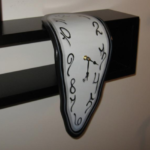Ultimate Guide to the IB Physics SL Exam
What’s Covered:
- IB HL vs SL: What’s the Difference?
- How Do SL Papers/Exams Work?
- How are the IB Physics SL Papers/Exams Scored?
- Final Tips
- How Does the IB Physics SL Exam Affect My College Chances?
This article will discuss the International Baccalaureate Diploma Program, or IBDP for short. For more information about IBDP and what the IB diploma is, please refer to CollegeVine’s guide to IBDP!
IB HL vs SL: What’s the Difference?
IBDP is a two-year long course, where students choose six subjects from six subject groups. Of these six subjects, at least three are specially curated classes called higher level (HL), and the rest are standard level (SL). In this blog, we’ll be focusing on group 4, the experimental sciences, specifically Physics.
SL and HL courses are different based on difficulty and amount of the coursework to be taught to the student. Such differences must be noted prior to signing up for classes, and trying to align your HL selections with what might match your pursuits for further education (college/university) could be useful. This would better prepare you for the future and depending on your school, might get you some extra course credits! Additionally, while you can do more than three HL subjects, it’s never recommended since three is a lot of load on the student already. It’s important to remember that even though this guide will be focusing on the SL aspects of Physics, a lot of the concepts in SL carry over to HL.
How Do SL Papers/Exams Work?
In Physics, regardless of HL or SL, you take three papers/exams over the course of your examinations. These papers are labeled as paper 1, paper 2 and paper 3. Each of the papers are meant to test the student on different qualities of the coursework, and challenge the student to approach different kinds of problems with different mindsets/perspectives.
Paper 1
Paper 1 is an MCQ exam, with 45 minutes for 30 questions in the SL variant. You are not allowed to use a calculator during this exam, however you are handed a data booklet. All experimental science exams provide a data booklet, which contains necessary formulae and data relevant to the exam questions. This paper is designed to be difficult despite being an MCQ, with questions that require lots of math/scratch-working. This is also why paper 1 tends to be scored more leniently in respect to grade boundaries, something we’ll get into with more detail soon.
Paper 2
Paper 2 is a free response exam unlike paper 1. There are short and extended response questions. Also, the calculator is allowed for this exam, and you’ll find that the data booklet is even more crucial for this paper than the previous! The paper is 75 minutes long with up to 50 marks of questions. This paper does make up a good chunk of your final IB Physics grade, which is why most students fear and struggle with this paper. Not only is the paper considered difficult, but the time limit prevents most students from actually finishing the exam! So don’t be worried if you find that you can’t finish all the questions in the given time, just focus on what you can and earn as many points available to you as possible. The difficulty of the exam is reflected
in the grade boundaries, with the paper 2 grade boundaries tending to be low.
Paper 3
Please note that IB students for examination sessions in 2022 will NOT have to write paper 3, but future examinations might.
Paper 3 is an hour long free response exam, worth 35 marks. Like paper 2, you are allowed both the booklet and a calculator. This paper contains data-based problems with numerous free response questions based on experimental work. The paper tests your understanding of the scientific method, experimental methods specific to the class, safety procedures in a lab, and more. It is, however, considered to be the easiest of the three papers, which most students will find to be a relief.
How are the IB Physics SL Papers/Exams Scored?
Grading for the exam is done based on a rubric associated with each paper. For the MCQ paper 1, the rubric just contains the correct option for each question. For paper 2 and paper 3 however, this rubric is going to not only contain the right answer, but also the right method in which this student should arrive at this answer, or in short, best working/proof. IB schools will give students access to previous exam sets for most subjects, including resources such as previous exam rubrics. This means, if you study the rubric of a past exam, alongside doing past papers for practice, you will not only get better at writing the exams but you can also learn to arrive at answers the way IB expects. This can help maximize the number of points you can grab out of each question, leading to a better grade!
In order to calculate your grade for the subject out of 7, IB uses a grade boundary (as mentioned earlier). Keep in mind, each year has a different set of boundaries for every IB subject, so make sure to check in with your school for the most recently updated one. The following is an example:
As you can see, each paper has a score out of 7, and the total number of marks associated with it. “Practical Work” refers to the internal research-based assessment done for the class, something which is a part of the overarching core of the IB’s group 4 subjects, which pushes students to research more in their class with more lab work.
To calculate your final grade out of 7, use the following formula:
(Paper 1 Score + Paper 3 Score + Paper 2 Score + Practical Work Score) / (30 + 35 + 50 +24) * 100
This formula will provide a percentage, which can then be compared to the “Final” column in the grade boundaries table. Depending on where the calculated percentage sits on the column, you’d know your score from 1 to 7. Keep in mind to pass a subject, you must get a four. This process is repeated with all six other subjects the student takes, as a part of the overarching grading system in IBDP.
Final Tips
Exam season is very stressful for students around the world, and especially so for IBDP students. However through stress management and certain tips, you can make the most out of the exams and make them less harsh of an experience!
Spend More Time in the Lab
A lot of the group four subjects, or sciences, will ask loads of lab-based questions in the exams, especially paper 3. A deep understanding of scientific techniques and experimentation is beneficial and crucial to success in this exam, so spending more time in the lab is a great way to improve your knowledge!
Practice the Exam Without a Calculator
While paper 2 and 3 calls for the permission of calculators, try practicing the format/style of these papers without the use of a calculator. Both papers offer a short time limit relative to the number of questions to solve, so using a calculator for small operations can eat away at the time left on your exam! Practicing solving these papers without a calculator will allow you to shave off useful time for your papers, perhaps allowing you to work harder on questions you find more difficult.
How Does the IB Physics SL Exam Affect My College Chances?
Most importantly, try and remember your exams aren’t as important to your university admissions as you’d think. Universities care more about the willingness to take difficult courses and show determination to learn, as opposed to scoring high. For a proper, and clear understanding of how your chances of admission into a university might be, try using CollegeVine’s free admissions calculator. This amazing tool uses standardized test scores, your GPA, extracurricular and more to determine your shot of getting into your dream schools!



